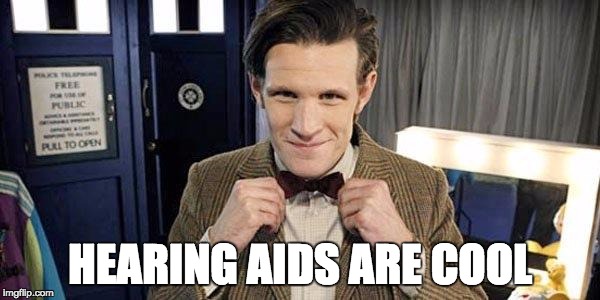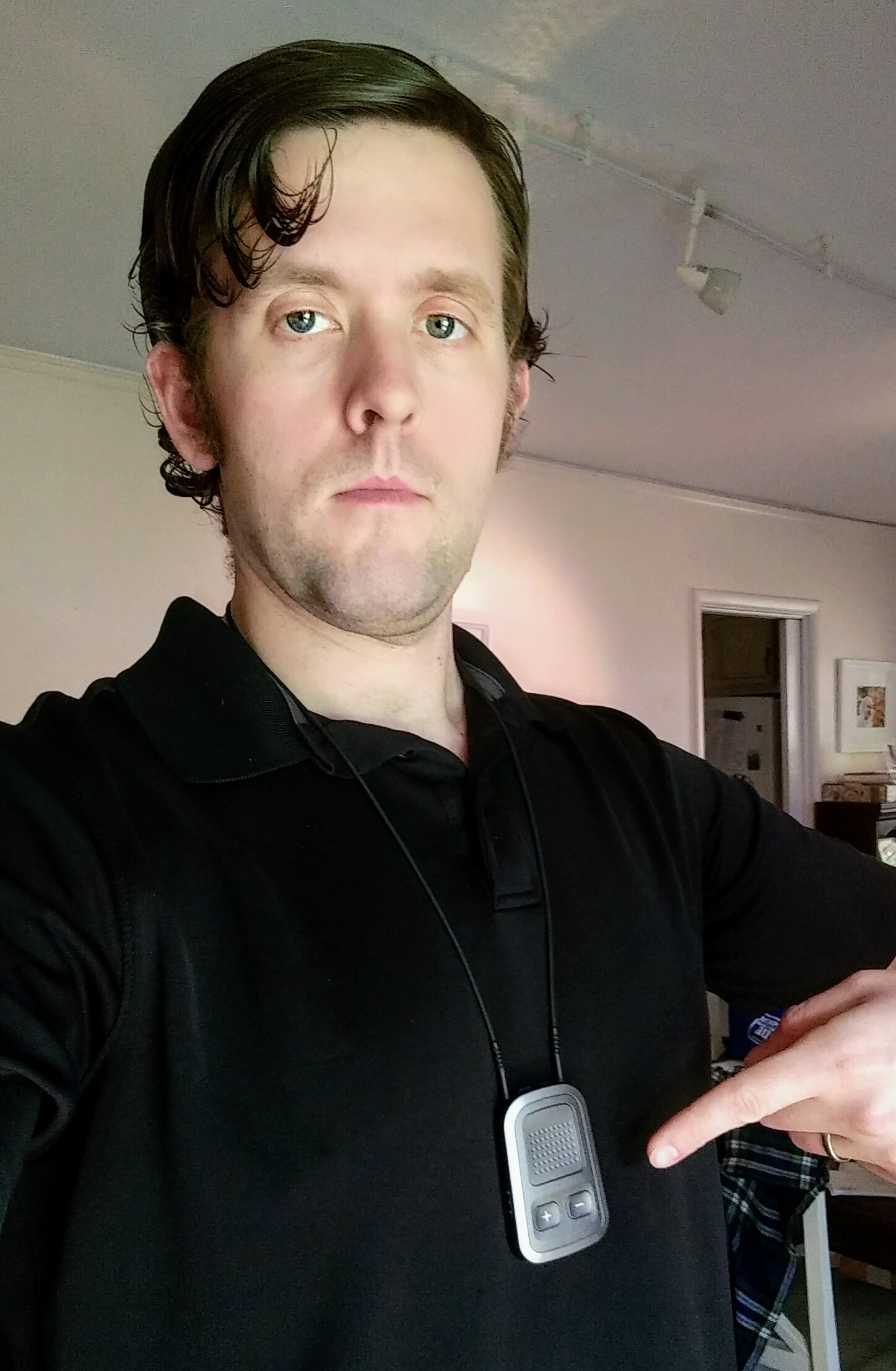Hearing Aids Are Cool
Personal story time! I’ve been wearing hearing aids since the 3rd grade. My folks drove me down to Florida State University to get a hearing test and a fitting for some new aids. I lost one of my first pairs in a cardboard box in a cabin in the woods and my parents didn’t even kill me. In the intervening 30 years I’ve been through a few sets of aids. My first few sets were in-the-canal (ITC) aids. My current set is a behind-the-ear (BTE) set.

Bow ties are cool! Fezzes are cool! Hearing aids are cool!
Each new generation of hearing aids offers better digitization and miniaturization technology. The latest ones I’ve seen work like AirPods on steroids - not only am I streaming internet audio from my phone via Bluetooth, I also have different listening profiles that shift the real-time digital signal processing algorithms in the aids to better enable me to participate in different listening environments. The profiles include stuff like “listening to music”, “talking face to face in a crowded restaurant/bar”, and “long-distance hearing outdoors”. It’s pretty interesting stuff! My personal favorite is the “turn me off during fire alarms” option where my aids magically switch to earplugs.
Pricing and availability
Unfortunately for a lot of folks, health insurance and government benefits often don’t cover congenital hearing impairments. I’ve been quoted per-ear prices from $250/ear to $2000/ear to get a set of aids. You can imagine that there are lots of folks out there who’d benefit from this sort of life-improving technology that aren’t getting it. There are some startups out there working on bringing lo-fi hearing aids to the masses via booths in Wal-Mart and such. Those appear to be simple amplifiers without the personalized hearing profiles I’m lucky enough to be able to afford on my aids.
There are also private companies like Beltone that sell hearing aids. You’ll probably have a local storefront in your town that will be happy to help you with a hearing test and advice on a purchase. I’ve never gone the private route though - university speech and hearing centers such as the local one operated by the University of Memphis have always felt like a better setup for me in terms of personalized service, competitive pricing, and lack of conflicting incentives between the hearing-impaired client and the service provider.
Cool add-ons

Wearing a uDirect3 pendant to allow bluetooth connection to my hearing aids. Humor me while I pretend I’m Tony Stark.
In order to harness the aforementioned Bluetooth capabilities I wear a pendant on a necklace. The pendant itself has a battery, a Bluetooth radio, and a microphone. There’s a wire attached to the top that serves as a necklace. The copper wire inside the necklace uses some sort of inductive force to communicate with the hearing aids themselves. There’s also a lapel mic attachment I can ask others to wear if I’m in a lecture situation and can’t quite hear from a respectable distance. I’ve used it a few times with my daughter on car trips. It was fun but the battery only lasted an hour or so. By contrast the necklace goes for about a full day.
What to know about living and working with a hearing aid user
Not too much - we’re just people. Don’t be surprised if I focus intensely on your lips while we talk. Lip reading is a key skill. Folks with more profound hearing loss (my hearing is maybe 2⁄3 as good as normal ears) may need additional consideration and support. If you know someone who could use some hearing aids, look and see if there’s a not-for-profit hearing clinic nearby! You may be surprised what you can find. If we’re talking and you notice that I missed the joke, it’s quite likely I didn’t understand you.
Hearing in tech
Working in tech provides some obvious benefits for hearing impaired folks. There’s a whole lot of quiet time, a whole lot of text-based communications. I for one love chatbots, Twitter, IRC, and forums. I also love talking with friends, family, and coworkers face to face but I do occasionally need a little help or a few extra repeats and explanations in a dynamic environment. I like speaking at conferences and that’s a pretty daunting experience for anyone. I’m wondering if I shouldn’t be more adamant about offering transcripts for conference talks. Maybe I’ll lead the way by writing out transcripts of all of my own content. Advice welcome!
Daniel
